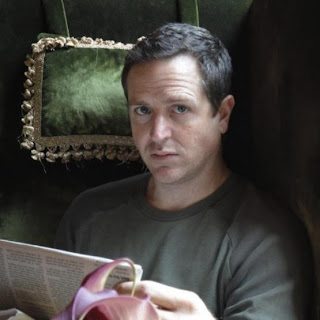Lately I’ve been thinking about failure and the fear of failure, so naturally I turned to Seth Godin and read--or reread--some of what he had to say on the subject.
1. Seek out projects you can afford to fail at.
“If you under-reach a little, nail it, succeed, declare victory and repeat, you’re probably better off.”[1]
We don’t have to go for broke, it doesn’t have be all or nothing. Start small and work up.
2. Be brave.
“[...] I’m talking about the guts to take responsibility for your art. [...] the guts to open the door yourself.”[1]
No risk, no reward. Creating art is scary because it makes us vulnerable.
“Writing is easy. You just open a vein and bleed.”
-- Red Smith
In order to connect with others, in order to reach our readers’ emotions, we have to fuel our writing with our own deep losses, our own tragedies, our own vulnerabilities. That’s scary.
3. Take the 10,000 hour rule to heart.
“The 10,000 hour rule is legit. If you spend enough time working through really difficult challenges, you’re just going to get better at it.”[1]
The more you publish, the more often you publish, the better you’re going to get at it--provided you learn from your mistakes.
4. Don’t make it personal.
“If you let the lizard brain run amok, if you turn problems into referenda about you, about your goodness as a human being, it’s not going to end well. A key to discernment is to figure out the truth of what you’re looking at and act on it, not let it act on you.”
Yes, sometimes reviews can review the author and not just the author’s work, but writers need to find a way to separate themselves from what they’ve written and not take criticisms about the work as criticisms about themselves as writers or as people. Something which can be difficult to do if you took rule number three to heart and bled all over the page.
5. Failure is the key to success.
“Fail.
“The single best way to overrule your fears is to call their bluff by making the fear come true.
“Do something you know will fail.
“And then fail again.
“Once you fail at what the lizard brain is so petrified of, it will lose its power over you.”[1]
Obviously Seth Godin is talking about non-fatal failures. And he’s not talking about intentionally failing at work or failing as a husband (or wife) or failing as a parent or failing as a human being. He’s talking about taking risks, perhaps relatively small risks.
If a person wants to climb Mount Everest they don’t start by climbing Mount Everest, they start by climbing a steep hill. They start by taking lessons. They start by trying, and probably failing, to achieve smaller goals.
I cannot guarantee that as long as you keep trying that, eventually, you will succeed.
I can guarantee that if you let a fear of failure keep you from trying that you will never succeed.
* * *
I’ve been working on a longer article about the fear of failure, but I wanted to share Seth Godin’s words with you. I believe what Seth Godin says: once we lose our fear of failure it will lose its power over us. Or, as Frank Herbert put it: fear is the mind-killer.
That quotation is one of my favorites:
“I must not fear. Fear is the mind-killer. Fear is the little-death that brings total obliteration. I will face my fear. I will permit it to pass over me and through me. And when it has gone past I will turn the inner eye to see its path. Where the fear has gone there will be nothing. Only I will remain.”
Fail. Fail again. Kill the fear. It’s the only way to truly succeed.
Notes/Links/References
1. Seth Godin – Full Stop Failure over at Turnaround Magazine.
Photo credit: "streetmusic" by *Light Painting* under Creative Commons Attribution 2.0.





